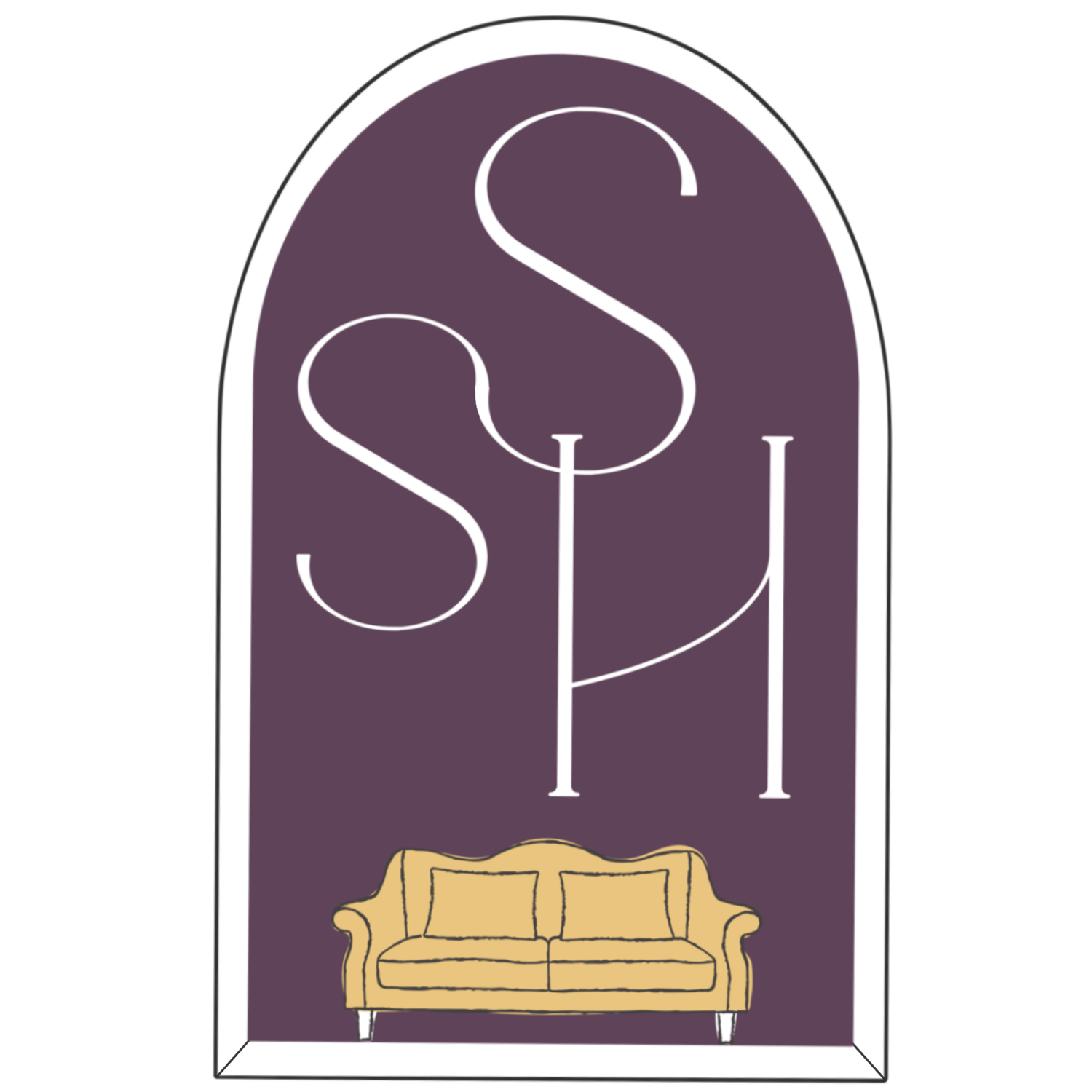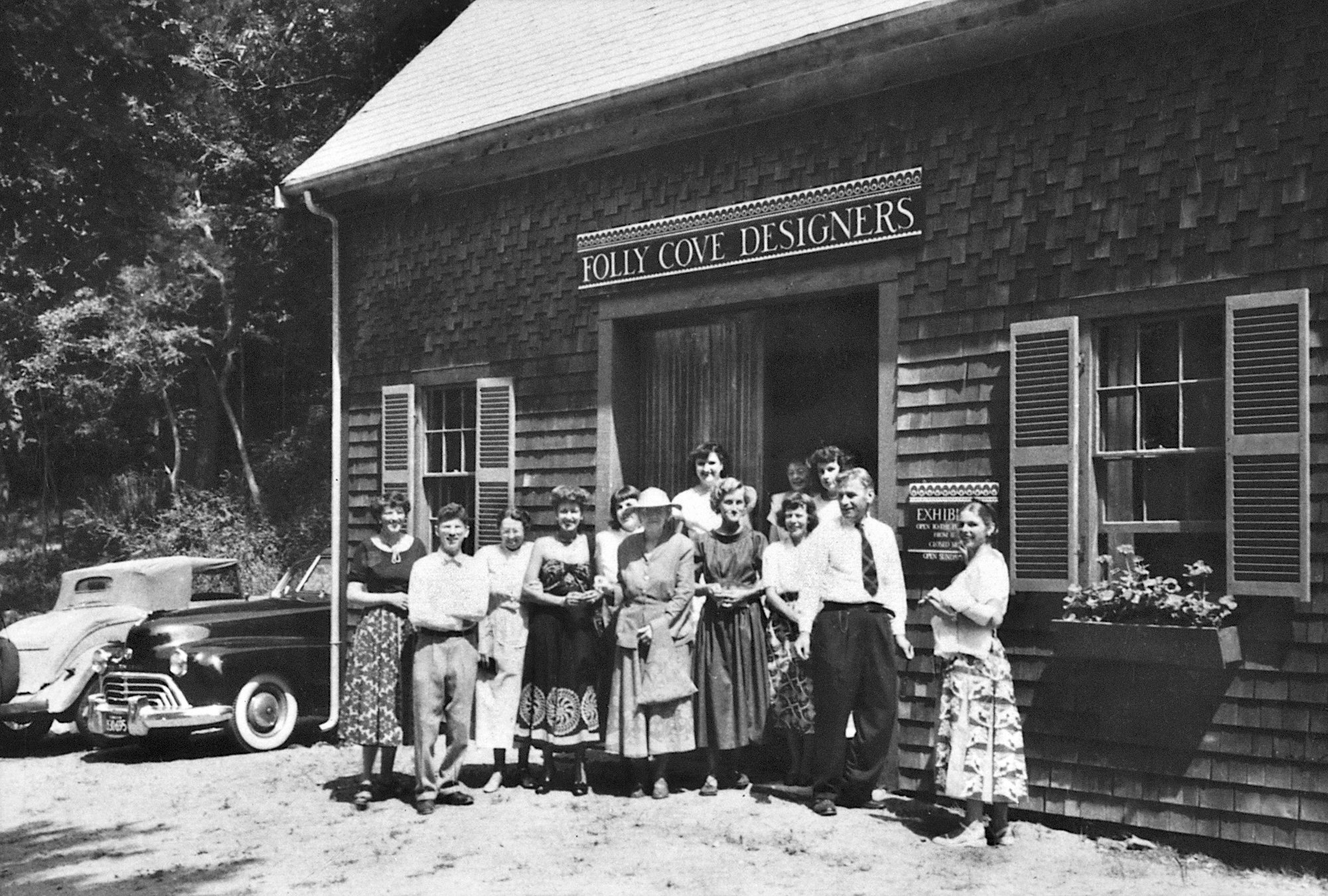Folly Cove Textile Designs: Exploring the Legacy with Elena Sarni
The tension between craftsmanship and mass production isn't new. In the 1930s, a design collective was formed by Virgina Lee Burton, author of award winning children's books, including my favorite, "Mike Mulligan And His Steam Shovel." She taught a group of mostly women how to create block print designs and together, they produced textiles and wallpaper. They called themselves the Folly Cove Designers, named for their town in Massachusetts, and collective become a powerhouse in the Americana design movement. Their commitment to high quality craftsmanship was an antidote to highly mechanized, mass produced goods and their legacy is still alive today. I'm happy to introduce the author of a new book that uncovers the history the Folly Cove Designers, Elena Sarni. We talk about everything from their linoleum-carving process to running a female led business at the turn of the century. Elena has written a wonderful book that uncovers the story of a group that defied expectations.
Photo by Nicole Gearty
KEY TAKEAWAYS
Discover the lasting impact of Folly Cove designers on the world of art, craft and design.
Learn about the block printing process and the specific motifs of the Folly Cove designers.
Uncover the timeless appeal of Folly Cove designs and how they continue to captivate audiences.
Discover the history of a very successful, female-led design business that ran for 30 years starting in the 1940s.
PHOTOS PROVIDED BY ELENA SARNI
KEY MOMENTS - TIMESTAMPED
Timestamped summary of this episode:
00:00:00 - Introduction to the Folly Cove Designers
Elena Sarney discusses the Folly Cove designers, a collective of mainly women who designed and printed over 300 patterns. She explains that block printing involves transferring a design onto a linoleum surface, carving away the pieces that will receive ink, and imprinting the design onto paper or fabric. Most of their designs were used for yard goods and wallpaper.
00:02:16 - Women in the Folly Cove Designers
Sarney explains that while the majority of the Folly Cove designers were women, they did not see themselves as a women's group. However, many of the women discussed the challenges of balancing their design work with family life and other jobs. Despite this, both men and women tackled similar design subjects, and there were only a few instances of overtly maternal depictions in their work.
00:04:24 - Business Side of the Folly Cove Designers
Sarney reveals that Dorothy Norton, a woman in the collective, became the manager and handled the business aspect of the Folly Cove designers. They requested that their name be included on the selvedge of manufactured pieces and even trademarked their name. Overall, they were well-organized and clear about what they were willing to accept and not accept.
00:06:38 - American Folk Aesthetic
The Folly Cove designs depicted items from the natural surroundings of the Massachusetts coast, along with people engaged in daily activities. This aesthetic was referred to as Americana and became popular during the era of
00:16:59 - What We Value in Society and Affordability
The discussion revolves around the value we place on certain things in society and the conflict between affordability and quality. The Folly Cove designers were able to bridge this gap by producing handmade items at affordable prices, while maintaining their rigid design principles.
00:19:54 - Pricing and Challenges for Artisans
The conversation delves into the challenges faced by contemporary artisans, such as determining price points and deciding whether to wholesale or take licensing deals. It highlights the importance of valuing handmade work and the struggle to strike a balance between affordability and fair compensation for makers.
00:21:05 - The Appreciation for Handmade
The renewed interest in the maker's movement is discussed, with COVID-19 contributing to its growth. While some people question the higher prices of handmade items compared to mass-produced alternatives, there is a recognition that the human touch and uniqueness of handmade items hold value.
00:22:25 - Personal Appreciation for Art and Craft
The host asks about the guest's own appreciation for art and craft in her home. The guest shares her love for ceramics and styling shelves with a mix of pottery, books, and personal items that reflect her family history.
00:24:39 - Timelessness and Relatability of Folly Cove Designs
The enduring appeal of the Folly Cove designs is attributed to their timeless and relatable motifs. The conversation mentions the influence of Virginia Lee Burton and the recent re-release of Folly Cove




![[01_FCD_ch1_012[1B].tif] - Meghan Phillips.jpg](https://images.squarespace-cdn.com/content/v1/6508e47e1f4f3b2f5b3f87cb/1700259488107-A38R4BL30KP9A8WRE30V/%5B01_FCD_ch1_012%5B1B%5D.tif%5D+-+Meghan+Phillips.jpg)
![[01_FCD_ch1_005[1A].jpg] - Meghan Phillips.jpg](https://images.squarespace-cdn.com/content/v1/6508e47e1f4f3b2f5b3f87cb/1700259460676-0FROLU3AR5GFCO1GUIXJ/%5B01_FCD_ch1_005%5B1A%5D.jpg%5D+-+Meghan+Phillips.jpg)
![[05_FCD_ch5_006[1A].jpg] - Meghan Phillips.jpg](https://images.squarespace-cdn.com/content/v1/6508e47e1f4f3b2f5b3f87cb/1700259469118-ZYP7LLWQDO0VULIDGJKC/%5B05_FCD_ch5_006%5B1A%5D.jpg%5D+-+Meghan+Phillips.jpg)
![[05_FCD_ch5_018[1A].jpg] - Meghan Phillips.jpg](https://images.squarespace-cdn.com/content/v1/6508e47e1f4f3b2f5b3f87cb/1700259477224-TILY4MFD54W061BSV1SD/%5B05_FCD_ch5_018%5B1A%5D.jpg%5D+-+Meghan+Phillips.jpg)
![[05_FCD_ch5_115[1A].tif] - Meghan Phillips.jpg](https://images.squarespace-cdn.com/content/v1/6508e47e1f4f3b2f5b3f87cb/1700259481548-0NQUXKBNTD0L16HQ3PMG/%5B05_FCD_ch5_115%5B1A%5D.tif%5D+-+Meghan+Phillips.jpg)
![[05_FCD_ch5_138[1A].jpg] - Meghan Phillips.jpg](https://images.squarespace-cdn.com/content/v1/6508e47e1f4f3b2f5b3f87cb/1700259484910-3M5U7DJQOIXRWX3FFT3F/%5B05_FCD_ch5_138%5B1A%5D.jpg%5D+-+Meghan+Phillips.jpg)
![[05_FCD_ch5_037[1A].jpg] - Meghan Phillips.jpg](https://images.squarespace-cdn.com/content/v1/6508e47e1f4f3b2f5b3f87cb/1700259525590-YU6IYP1Q6IAARMA26B6B/%5B05_FCD_ch5_037%5B1A%5D.jpg%5D+-+Meghan+Phillips.jpg)
